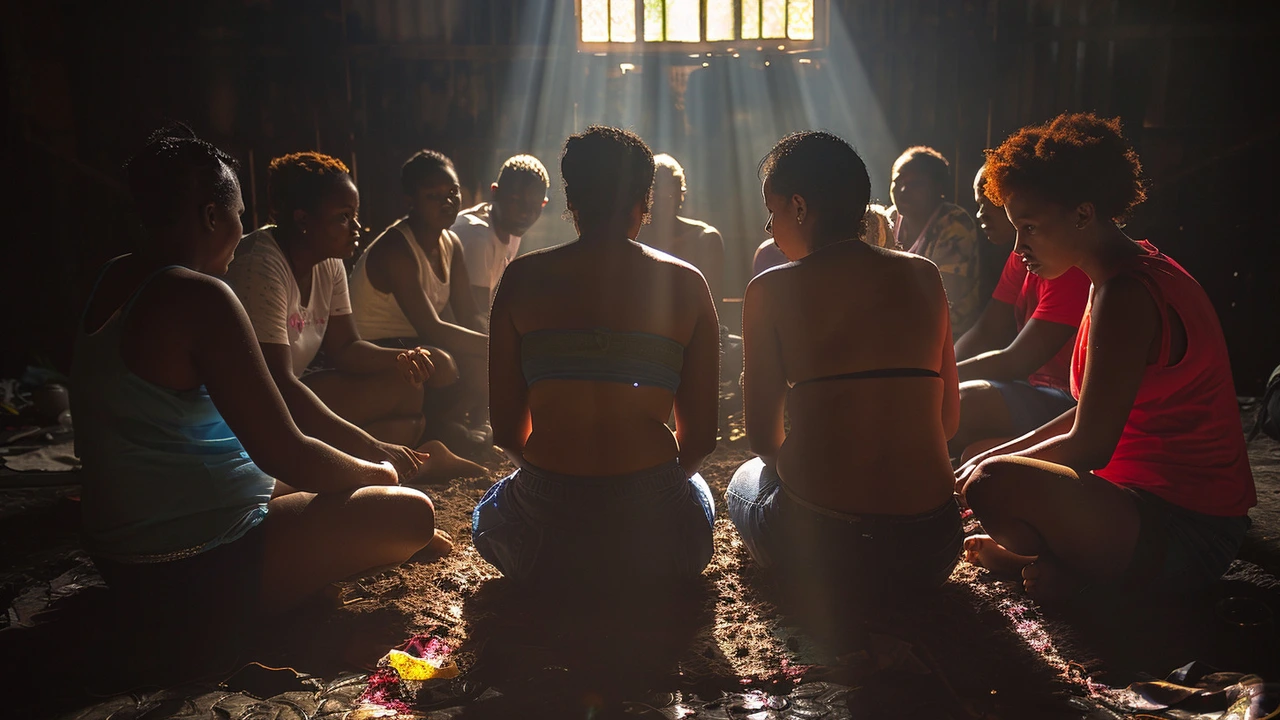- World Bank's Knowledge Compact: Revolutionizing Development with Technology May 13, 2024
- Noam Chomsky: Celebrating the Intellectual Titan and Moral Beacon Jun 19, 2024
- Carabao Cup Quarter-Finals 2024: Full Match Schedule, TV Broadcast, and Analysis Oct 29, 2024
- JPMorgan Chase Establishes Kenya Office Following Regulatory Approval Oct 15, 2024
- Toni Kroos to Retire: Legendary Midfielder's Final Euro 2024 Bow with Germany May 21, 2024
Ghana prostitution ring: what the latest reports mean for you
Stories about a Ghana prostitution ring can sound shocking. They raise questions about crime, exploitation, and how communities and authorities respond. Here you’ll find clear, practical information on what these cases involve, how investigations work, and how to stay safe or help someone in trouble.
What a prostitution ring looks like
A prostitution ring is more than one person selling sex. It usually involves organisers who recruit, control, and profit from others. That can include offering fake jobs, taking travel documents, using violence or threats, and moving people between properties or countries. In Ghana, reports often mix local sex work, forced situations, and trafficking — so careful reporting and strong investigations matter.
How do you spot it? Watch for repeated patterns: the same people arriving at a house, very restricted movement, sudden new workers who don’t speak the local language, or signs of coercion like fear around employers. Promises of safe jobs abroad followed by withheld documents or forced debt repayments are common recruitment tactics.
How investigations and support usually work
Police, social services, and NGOs usually work together. Investigators gather evidence, interview victims and witnesses, and try to identify organisers. Social workers and NGOs provide immediate help: safe housing, medical care, counselling, and legal support. Criminal cases can take time, so protecting victims and witnesses is a priority.
If you suspect a ring, don’t act alone. Report details to the local police or a trusted NGO. In many places, organisations like IOM and local anti-trafficking groups offer hotlines and referral services. You can also tell social services or community leaders who know how to connect people to help without putting them at more risk.
Journalists and citizens should verify sources and avoid sharing victim images or identifying details. That protects survivors and helps legal cases. When you share news, check for official statements from police or recognised NGOs to avoid spreading rumours.
Want to help directly? Support local shelters, donate to organisations that assist survivors, or volunteer with credible groups. Small actions — safe reporting, funding counselling, or backing legal aid — can make a real difference.
African EduNews Tree follows developments in Ghana closely and posts verified updates as investigations progress. Bookmark this tag, check official statements, and look for stories that include survivor support options. If you have a tip or need help, contact local authorities or a trusted NGO first. For public tips, consider using established news hotlines or anonymous reporting tools offered by civil society groups.
These cases matter because they affect real people and communities. Stay alert, share verified information, and support organisations that protect survivors. That’s how communities push back against exploitation and bring organisers to justice.
Nigerian Man Arrested for Allegedly Trafficking Teenage Girls to Ghana for Prostitution – High Commissioner
- Katlego Sean Mahaye
- Jun 11, 2024
A Nigerian man, Chukwudi Nwachukwu, was apprehended for allegedly trafficking 11 teenage girls to Ghana under the pretense of offering them jobs, only to force them into prostitution. The acting Nigerian High Commissioner in Ghana confirmed the girls are safe, receiving care, and promised their reunification with families after the investigation completes.
